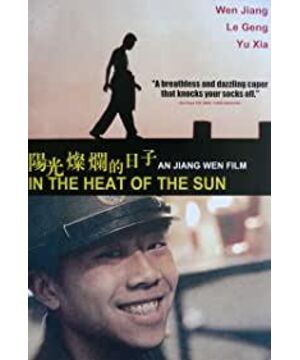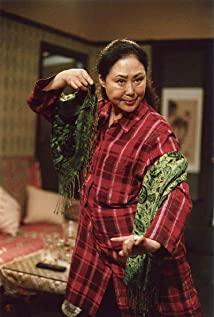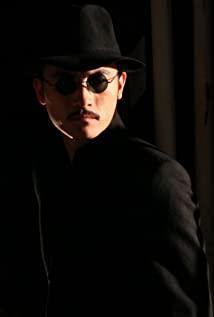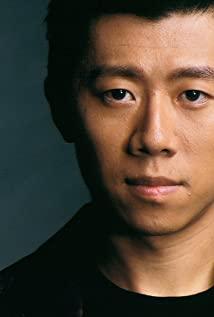Along with the melodious melody of "Country Knight Interlude" in the film, he sang and sighed three times. In the sunny days of youth, a bright and beautiful figure jumped up, crossed an arc, and disappeared from the sunshine of youth. Without a trace. Leaving scattered memory fragments, as well as the inner world of a boy that carries these memories. "Sunny Day" Jiang Wen directed the first film, released in 1994. The film tells the youthful past of Ma Xiaojun, a young man living in a courtyard in Beijing in the 1970s. The story revolves around Ma Xiaojun and his favorite girl, Milan, showing Ma Xiaojun and those children's green years little by little. At the beginning of the film, the audience showed a magnificent picture of the times: people sang and danced under the huge statue of Chairman Mao, and sang the greatness of the times with enthusiasm. Nianbai Lima Xiaojun said: "This city belongs to us." The young people in the 1970s always had this kind of courage. They ran and danced enthusiastically, with determination and passion to conquer everything. Ma Xiaojun is like this. He will secretly put on military uniforms and military medals, and fantasize about destroying all imperialist armed forces with his heroism. Enjoy the taste of mastery and freedom. At this time, he met Milan, a beautiful girl several years older than him. Her sweet and bright smile, round and delicate calves, calm and confident elegance and mystery made Ma Xiaojun completely fascinated. Ma Xiaojun, who is in the "sunny day", is brave. He boldly goes to chat with Milan, keeps going to her house to find her, chat with her, ask her for photos, invite her to swim together, in order to attract each other Pay attention to climbing up the chimney alone... But Ma Xiaojun is timid again. He cried as soon as he was caught by the public security bureau. He lied to his father that Milan was his "teacher", did not admit that he often came to Milan, and never dared to Showing my heart to Milan and Liu Yiku... The combination of that heroic and fearless passion and this real timidity made Ma Xiaojun's image a representative of every adolescent boy. Human emotions are often complex, but only by deconstructing this complexity can we try to explain human behavior. After being scolded by the Public Security Bureau, Ma Xiaojun looked in the mirror in his bedroom and imagined himself "teaching" the police, and then beat the gangsters on Sixth Street with bricks to the accompaniment of the majestic "The Internationale" in order to let out his breath; All the great things were told to Milan by his own head; when he told Milan to his friends, he jumped up and down with a red face but kept staring at Milan; in order to attract Milan's attention, he climbed up desperately. Chimneys show off...how hilarious these are! But this is precisely The externalization of the inner world of a boy, an enthusiastic and overwhelmed boy. In the story told by Ma Xiaojun, Milan is getting closer and closer to his good buddy Liu Yiku. What he wants is not to get along with Milan like a friend, he wants to conquer Milan, to occupy this girl full of wild charm. Everything in front of him made him distressed, but he didn't know how to express it. So he was angry with himself, with Milan, and with Liu Yi. Ma Xiaojun became more and more twisted. He lost his temper at Milan without warning, and then cried out that rainy night. It was that rainy night that Ma Xiaojun's emotions finally broke out. The title of the film is "Sunny Day", but the director arranged such a rain scene. Ma Xiaojun shouted his heart out in the pouring rain, but was stunned to find that he had already confused memory and fantasy. At this point in the story, Ma Xiaojun's real youth memory is entangled with his imaginary plot, and you will find that the whole story seems to only happen in this boy's inner world. But it is precisely this indistinguishable elusiveness that constitutes his most authentic youth. At the end of the story, Ma Xiaojun desperately tried to stick his head out in the pool, but was kicked into the water by his buddy and Milan again and again. With the elegant and soothing "Country Knight Interlude", Ma Xiaojun's youth story came to an end. The main scene of this film restores the environment in which Jiang Wen grew up when he was a child. Jiang Wen's original name was Jiang Xiaojun, and Xia Yu was chosen as the starring role because Jiang Wen's mother felt that he and Jiang Wen looked very similar when they were young. As Director Jiang's maiden group, we have reason to believe that "Sunny Days" entrusts some of the things he never forgets and wants to express most in his heart. The picture of the movie is very particular. In the "sunny day", the furry warm light effect is not only the taste of youthful memories, but also implies that all this may be just the fantasy of young people. In terms of soundtrack, the "Country Knight Interlude" with elegant temperament but with a tragic undertone runs through every meeting between Ma Xiaojun and Milan, which makes people feel moved. Jiang Wen used almost all the means he could to present a boy's inner world carefully but one by one to every audience. I often feel that this is the charm of literary and artistic works: the complex emotions unique to adolescence, the inner world that can be turned upside down for a girl at any time, cannot be described in any language or text. Only literary and artistic works can use this comprehensive and subtle expression to make every boy resonate so strongly in silence. In the last easter egg, the teenagers of that year were all wearing suits and ties, sitting in the stretched limousine, drinking foreign wine and shouting at the fools of the past. When the fool turned his head, only two words popped out: "Silly force! "Leaving everyone and the audience in front of the screen stunned. Seeing this, I laughed heartily: this is the director's characteristic humor, and it must be the most powerful summary and farewell of these men to that period of youth.
View more about In the Heat of the Sun reviews











